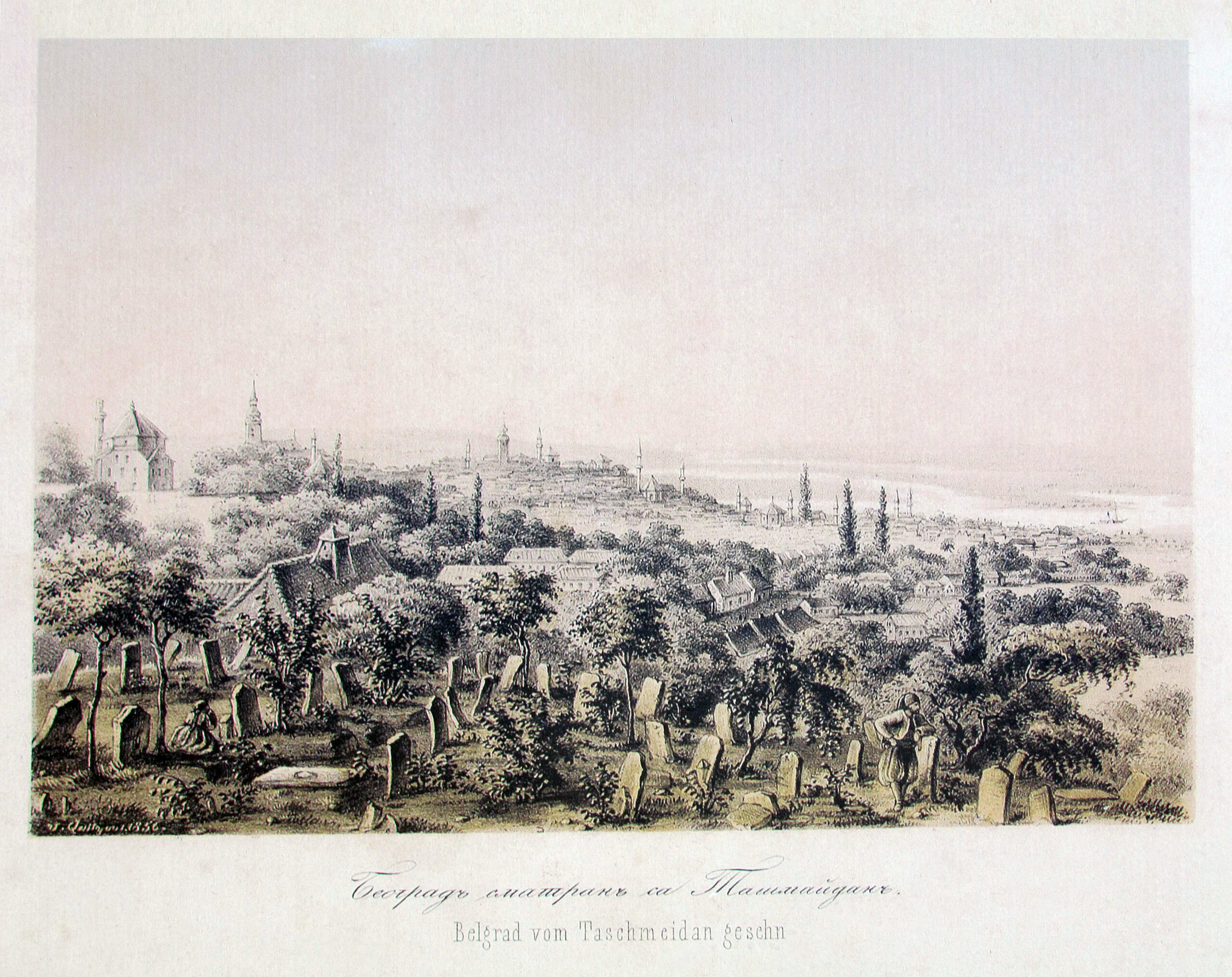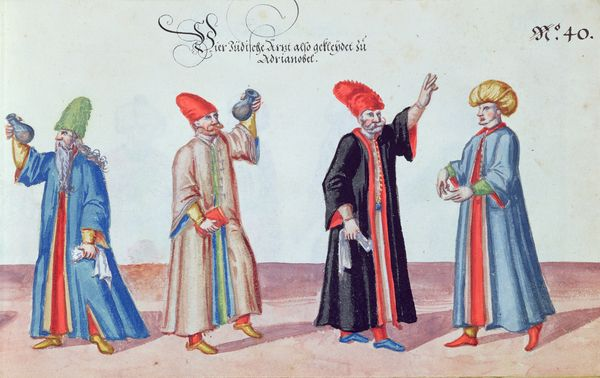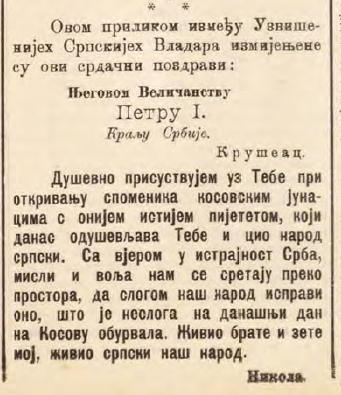[On the reign of Despot Stefan Lazarević]
Who will express the unspoken joy when the land, truly desolate, once again received such a shepherd! Coming to his homeland like Koiil, (who), emerging from the deep forests, comes terrifying, spitting fire and frightening those near and far; thus emerging and visiting, like lightning he shone thundering, confusing the disobedient (who were so) due to many tumults. And every dishonor was trampled and feared: the hands of those who committed injustice and who strive towards evil were cut off, and justice flourished and bore fruit. The swift did not drive out the slow nor the rich the poor, nor did the powerful take the lands of their neighbors, nor was the sword of the mighty drawn, nor was the blood of the righteous spilled, nor was there evil and foolish talk, nor lying against the leaders, nor despising the gloriously ranked, nor anything like that. And what then did Bayezid do throughout the world. If anyone because of their disbelief (what) lost or (due to) poor service or by some other means became poor, them (the despot) he placed in the first dignity and respect even if they were in miserable circumstances – so that no one is deprived of their ancestral or grandfather’s or great-grandfather’s place. For according to divine fates he spoke of those who had sinned – that they should not be punished twice. And he who had not sinned, as a poor man, he respected lovingly in the manner of Solomon. He had raised, from the beginning so to speak, his great baptismal garden: some as leaders over affairs (he appointed), others as his bodyguards which was also the most confidential (internal) rank. And then (there was also) a second rank. Then a third, external, so that the third were in community with the others and the others with the first, so to speak by the angelic rank, and one could see the image of Aeropagite. /Constantine the Philosopher compares the reign of Despot Stefan Lazarević with the work On the Ecclesiastical Hierarchy by Dionysius the Areopagite, that is, an unknown author from the late 4th and early 5th century./ For God too, in His image, entrusted men with state power. And about the matters of the imperial house, a multitude of these were in every rank, so that there would be enough at all times, that there would be plenty (and) too much. And all were seen with awe as angels by the eyes of those who come in amazed devotion, and all behaved towards one another as is fitting and with fine restraint; even more so those, the internal ones, whom this ray (Stefan) supervised, appointed, and illuminated. Shouting, stomping of feet, laughter or clumsy clothing was not even to be mentioned, and all were dressed in bright clothes, which the despot personally distributed. And in every imperial command shone imperial (words). With awe, all looked upon him. And it should also be known that no one could gaze into his eyes, not even the highest. We do not say this alone, but also all those who have experienced it testify. And he who vowed to behold them, could not be worthy of this. And this is even more wondrous than the first: in such a reign, some occasionally escaped from women’s love and music. And he hated both, and what’s more, rejected them. Only as much music as is necessary for war, he said, should be found.



